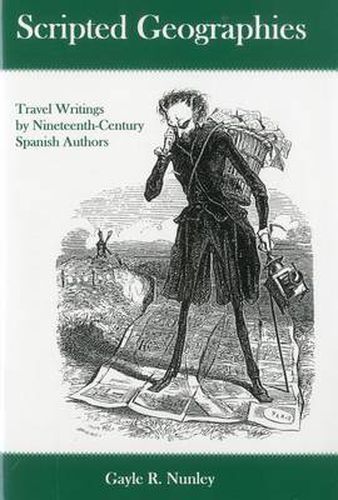Readings Newsletter
Become a Readings Member to make your shopping experience even easier.
Sign in or sign up for free!
You’re not far away from qualifying for FREE standard shipping within Australia
You’ve qualified for FREE standard shipping within Australia
The cart is loading…






This study offers the first book-length exploration of travel narratives by nineteenth-century Spanish authors. Focusing on texts produced during a crucial period in the development of Spain’s modern consciousness at the close of its imperial age, Scripted Geographies shows how writers’ strategies of travel representation reflected and participated in this process of cultural transformation. The first two chapters, devoted to travel within Europe, explore constructions of Spain’s sometimes problematic encounter with Western society and traditions. The final chapters shift to orientalist travel, allowing reflection on how Spanish renderings of the non-Western ‘other’ intersect with patterns found in the better-known corpus of orientalist literature produced in then-ascendant imperial powers like Britain and France. These textual constructions of cultural difference reflect at a profound level their authors’ preoccupations and hopes for Spain, as well as their strong awareness of both the powers and dangers inherent in the process of representing ‘real world’ experience via language.
$9.00 standard shipping within Australia
FREE standard shipping within Australia for orders over $100.00
Express & International shipping calculated at checkout
This study offers the first book-length exploration of travel narratives by nineteenth-century Spanish authors. Focusing on texts produced during a crucial period in the development of Spain’s modern consciousness at the close of its imperial age, Scripted Geographies shows how writers’ strategies of travel representation reflected and participated in this process of cultural transformation. The first two chapters, devoted to travel within Europe, explore constructions of Spain’s sometimes problematic encounter with Western society and traditions. The final chapters shift to orientalist travel, allowing reflection on how Spanish renderings of the non-Western ‘other’ intersect with patterns found in the better-known corpus of orientalist literature produced in then-ascendant imperial powers like Britain and France. These textual constructions of cultural difference reflect at a profound level their authors’ preoccupations and hopes for Spain, as well as their strong awareness of both the powers and dangers inherent in the process of representing ‘real world’ experience via language.